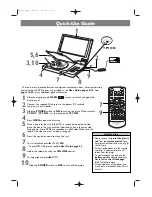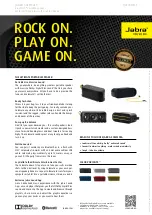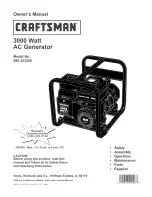
13
60706-229/F
NOTICE:
CLASS 1 WIRING METHODS ARE TO BE USED FOR ALL
FIELD WIRING CONNECTIONS TO TERMINAL OF A CLASS
2 CIRCUIT.
WARNING
A mainline circuit breaker has been provided inside the
generator housing. During all wiring installation, make
sure the breaker is in the off position and the generator
operators switch is in the off position.
Note: This symbol always indicates ground where
used.
GENERATOR CONNECTIONS
WIRE TEMPERATURE RATING
CU Connector
Quantity
75° C
#8 AWG
2
90° C
#4 AWG
1
The previous table shows the minimum conductor sizes
between the generator and the ATS, based on wire type
and temperature rating. Wire has been derated 40° C
ambient temperatures.
To gain access to the customer connections, remove
the end door panel opposite the muffler. All AC and DC
connections to the ATS, 120 Volt power connection for
battery charger, and battery installation are made behind
this panel. See drawings for generator set and pad layout
featured within this manual.
Two hot leads, one neutral, and one ground lead are
required between the generator and the ATS or distribution
panel. The two power leads from the generator are marked
G1 and G3. Next install the two leads, one neutral, and one
ground from the generator set to the ATS or distribution
panel.
AC ELECTRICAL CONNECTIONS
In addition to the power leads, install a three wire 120
Volt, 15 Amp circuit from your distribution panel to the
generator. This circuit will be used to power the battery
charger, optional block heater and optional battery heater.
The last four wires you will install are the DC control leads
(14 or 16 gauge) for the start circuit in the ATS. These
connections will be discussed later in more detail.
WINCO UL ATS (ASCO 185)
See the ASCO installation manual for additional details on
proper wiring of the Automatic Transfer Switch.
The standby generator terminals in the ATS are marked
“ALTERNATE L2 & L6”. The “hot” leads G1 and G3 from
the generator are connected to the terminals L2 & L6.
The normal line power terminals in the ATS are marked
“PREFERRED - L1 & L5”. The “hot” line power leads are L1
and L3 from the utility power supply. They are connected to
terminals L1 and L5.
The load terminals in the ATS are marked “LOAD - L3 & L7”.
The leads to the load distribution panel are connected to
terminals L3 & L7.The neutral leads from all three locations
are connected to the isolated terminal lugs on the sidewall
of the cabinet. This terminal block is labeled “NEUTRAL” and
the terminal lugs are mounted on red isolation standoffs.
The ground leads from all locations are connected to the
grounded terminal lugs also located on the side wall. This
set of terminals is labeled “GROUND”.
INSTALLATION NOTES:
The load current carrying wires (L) and (T) must be sized
to handle the maximum load current without excessive
voltage drop. By code, the wire must be heavy enough
to handle the full current rating of the main line circuit
breaker (or fuse) in the entrance (or sub-panel) protecting
the contactor switch. All wires should be installed in
rigid or flexible conduit. Because of the many different
types of service, feeder, and distribution equipment, no
specific wiring instructions can be provided. It is, however,
recommended that copper wire be used. In all cases it is
essential that while the load is connected to the generator,
there can be absolutely no feedback from the generator
to the power line or the power line to the generator.
When properly installed, the normal ATS control and safety
systems will eliminate all paths for feedback. Check with
your local electrical inspector on applicable local, state and
federal codes.
WARNING
A service disconnect must be installed in front of the
ATS panel as the ATS is not service entrance rated. This
will allow you to test the generator under load. Should
you ever have to work on the switch, you will be able
to disconnect the power and work on the switch cold
without having the power company pull your meter.
To wire the automatic transfer switch into the existing
wiring, first determine which circuits will be on the
emergency load circuit. If the entire load is to be transferred,














































